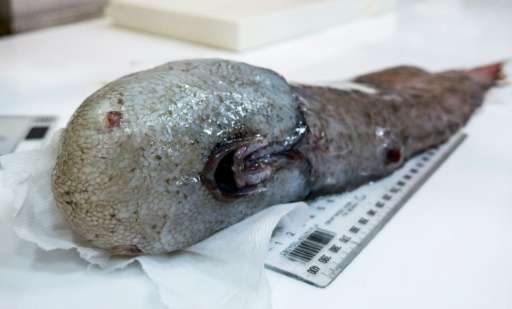Scientists on a research voyage to study parts of the ocean never seen before hauled up a number of new species off the deep water of Australia. One of their finds was a faceless fish, thought to have been extinct.
The month-long journey on “The Investigator” took place on the country’s eastern seas, where scientists surveyed life forms in a dark, cold, underwater canyon plunging four kilometers below the surface, Phys.org reports. The team used nets, sonars and deep-sea cameras to record their findings.
Tim O’Hara from Museums Victoria, chief scientist, said that the search area was “the most unexplored environment on earth.” Some of the specimens they collected included red spiky rock crabs, blind sea spiders, puffed-up coffinfish and deep sea eels. There were carnivorous sponges, too, which have tiny, lethal spikes made of silicone.
They also encountered an unusual faceless fish, which has only ever been recorded in marine history once in 1873, when the HMS Challenger discovered one off Papua New Guinea. O’Hara said,
It hasn’t got any eyes or a visible nose and its mouth is underneath.
At such deep levels, the waters are so dark that creatures don’t often have eyes, or they produce their own bioluminescence. Temperatures are freezing as well, and there is very little food, so marine animals living here have evolved in unique ways in order to survive.
O’Hara added, “We’ve got 27 scientists on board who are leaders in their fields and they tell me that around one-third of what we’ve found are new species.” The team has retrieved thousands of specimens so far, and the trip has two weeks more to go.
The journey was challenging, O’Hara admitted. Each fishing trip takes seven hours to deploy and retrieve equipment, using eight kilometers of cable. But the data the scientists have collected is important to help understand Australia’s deep-sea habitats, and the ecological processes that sustain them, O’Hara said. “This will assist in its conservation and management and help to protect it from the impacts of climate change, pollution and other human activity.”
























